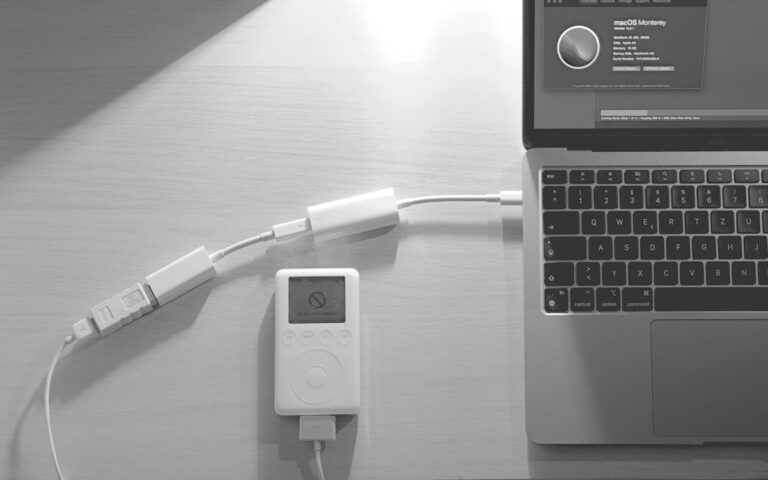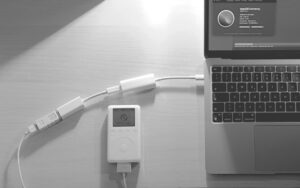The dawn of a new day often brings with it a sense of renewal and opportunity. Engaging in morning meditation can serve as a powerful catalyst for setting a positive tone for the day ahead. This practice, which involves focusing the mind and eliminating distractions, can help individuals cultivate mindfulness and clarity.
For instance, dedicating just ten minutes to deep breathing exercises or guided meditation can significantly reduce anxiety levels and enhance emotional resilience. Research has shown that regular meditation can lead to structural changes in the brain, particularly in areas associated with stress regulation and emotional well-being. By incorporating this practice into the morning routine, individuals can foster a sense of calm that permeates their daily activities.
Complementing meditation with physical exercise amplifies these benefits. Engaging in activities such as yoga, jogging, or strength training not only boosts physical health but also enhances mental acuity. Exercise releases endorphins, often referred to as “feel-good” hormones, which can elevate mood and increase energy levels.
For example, a brisk 30-minute walk in nature can invigorate the mind and body, providing a natural antidote to the lethargy that often accompanies early mornings. The combination of meditation and exercise creates a holistic approach to well-being, equipping individuals with the mental clarity and physical vitality needed to tackle the challenges of the day.
Healthy Breakfast and Nutritional Planning
A nutritious breakfast is often heralded as the most important meal of the day, and for good reason. It serves as the foundation for sustained energy levels and cognitive function throughout the morning. A well-balanced breakfast should ideally include a mix of complex carbohydrates, healthy fats, and protein.
For instance, oatmeal topped with fresh fruits and nuts provides fiber, vitamins, and minerals that fuel both body and mind. Studies have indicated that individuals who consume a healthy breakfast tend to perform better academically and professionally, showcasing improved concentration and memory retention. Nutritional planning extends beyond just breakfast; it encompasses the entire day’s meals.
By taking the time to plan meals ahead of time, individuals can make healthier choices and avoid the pitfalls of convenience foods that are often high in sugar and unhealthy fats. Meal prepping can be an effective strategy, allowing for the preparation of balanced lunches and dinners that align with dietary goals. For example, preparing grilled chicken with quinoa and steamed vegetables not only ensures a nutritious meal but also saves time during busy weekdays.
This proactive approach to nutrition fosters a sense of control over one’s diet, ultimately leading to better health outcomes.
Goal Setting and Prioritizing Tasks

Setting clear goals is essential for personal and professional growth. Goals provide direction and motivation, acting as benchmarks against which progress can be measured. The SMART criteria—Specific, Measurable, Achievable, Relevant, Time-bound—serve as a useful framework for effective goal setting.
For instance, rather than stating a vague goal like “I want to get fit,” one might specify, “I will run a 5K in under 30 minutes within three months.” This clarity not only enhances focus but also makes it easier to track progress. Once goals are established, prioritizing tasks becomes crucial in ensuring that efforts align with these objectives. The Eisenhower Matrix is a popular tool for categorizing tasks based on urgency and importance.
By distinguishing between what is urgent and what is important, individuals can allocate their time more effectively. For example, responding to emails may seem urgent but could be less important than working on a project that contributes directly to long-term goals. By focusing on high-priority tasks first, individuals can maximize their productivity and make meaningful strides toward achieving their aspirations.
Personal Development and Learning
| Category | Metrics |
|---|---|
| Goal Setting | Number of goals set |
| Learning Hours | Total hours spent on learning |
| Skills Acquired | Number of new skills learned |
| Books Read | Total number of books read |
Personal development is an ongoing journey that encompasses various aspects of life, including emotional intelligence, skill acquisition, and self-awareness. Engaging in continuous learning is vital for personal growth; it not only enhances knowledge but also fosters adaptability in an ever-changing world. Online courses, workshops, and reading are excellent avenues for expanding one’s skill set.
For instance, platforms like Coursera or Udemy offer courses ranging from coding to creative writing, allowing individuals to explore new interests or deepen existing expertise. Moreover, personal development is closely tied to self-reflection. Taking time to assess one’s strengths and weaknesses can lead to greater self-awareness and informed decision-making.
Journaling is a powerful tool in this regard; it encourages individuals to articulate their thoughts and feelings while tracking their progress over time. By reflecting on experiences—both successes and failures—individuals can glean valuable insights that inform future actions. This commitment to personal development not only enriches one’s life but also enhances professional opportunities by cultivating a well-rounded individual capable of navigating diverse challenges.
Time Management and Productivity Techniques
Effective time management is a cornerstone of productivity. In today’s fast-paced world, mastering this skill can significantly impact both personal satisfaction and professional success. Techniques such as the Pomodoro Technique—where work is broken into intervals followed by short breaks—can enhance focus and prevent burnout.
By concentrating on tasks for 25 minutes at a time before taking a five-minute break, individuals can maintain high levels of productivity while allowing their minds to rest. Another valuable approach is the practice of batching similar tasks together. This technique minimizes context switching—a common productivity killer—by allowing individuals to focus on one type of task at a time.
For example, setting aside specific blocks of time for responding to emails or making phone calls can streamline workflow and reduce distractions. Additionally, utilizing digital tools like task management apps (e.g., Trello or Asana) can help individuals organize their responsibilities visually, making it easier to prioritize tasks and track progress over time.
Relaxation and Stress Management

Incorporating relaxation techniques into daily routines is essential for maintaining mental health and overall well-being. Stress is an inevitable part of life; however, how one manages it can make all the difference in quality of life. Practices such as deep breathing exercises, progressive muscle relaxation, or even simple stretching can help alleviate tension accumulated throughout the day.
For instance, taking five minutes to focus on deep breathing—inhale for four counts, hold for four counts, exhale for four counts—can activate the body’s relaxation response, reducing feelings of stress. Mindfulness practices also play a significant role in stress management. Engaging in activities such as mindful walking or mindful eating encourages individuals to be present in the moment rather than getting caught up in worries about the past or future.
This shift in focus can lead to greater emotional regulation and resilience against stressors. Furthermore, hobbies such as painting or gardening provide creative outlets that promote relaxation while fostering a sense of accomplishment and joy.
Networking and Socializing
Building a robust network is crucial for both personal growth and professional advancement. Networking goes beyond mere socializing; it involves cultivating meaningful relationships that can lead to opportunities for collaboration, mentorship, or career advancement. Attending industry conferences or local meetups allows individuals to connect with like-minded professionals who share similar interests or goals.
For example, participating in workshops related to one’s field not only enhances skills but also opens doors to new connections that may prove invaluable in the future. Socializing also plays an essential role in maintaining mental health. Engaging with friends or family provides emotional support and fosters a sense of belonging.
Regular social interactions can combat feelings of isolation or loneliness that many people experience in today’s digital age. Whether it’s joining a book club or participating in community service projects, finding avenues for social engagement enriches life experiences while contributing positively to overall well-being.
Reflection and Planning for the Week Ahead
As the week draws to a close, taking time for reflection becomes paramount in understanding personal growth and setting intentions for the upcoming days. Reflecting on achievements—no matter how small—can boost motivation while identifying areas for improvement fosters continuous development. Keeping a weekly journal where one notes accomplishments alongside challenges faced can provide clarity on patterns that may need addressing.
Planning for the week ahead involves setting clear objectives based on reflections from the previous week. This proactive approach allows individuals to enter each week with purpose and direction. Utilizing tools such as planners or digital calendars can aid in organizing tasks while ensuring that priorities align with long-term goals.
By dedicating time each week to reflect on past experiences and plan future actions, individuals cultivate a mindset geared toward growth and achievement, ultimately leading to more fulfilling lives both personally and professionally.
FAQs
What are weekend routines?
Weekend routines refer to the activities and habits that individuals engage in during their weekends, typically to relax, recharge, and prepare for the upcoming week.
What are high-performing people?
High-performing people are individuals who consistently achieve outstanding results in their professional or personal lives. They are often known for their productivity, focus, and ability to manage their time effectively.
What are the weekend routines of high-performing people?
The weekend routines of high-performing people often include a balance of activities such as exercise, spending time with family and friends, pursuing hobbies, engaging in self-care practices, and preparing for the week ahead.
Why is it important to have a weekend routine?
Having a weekend routine can help high-performing people maintain a healthy work-life balance, reduce stress, and ensure they are well-prepared for the upcoming week. It can also provide a sense of structure and consistency in their lives.
What are some common elements of weekend routines for high-performing people?
Common elements of weekend routines for high-performing people may include exercise, meal planning and preparation, relaxation and leisure activities, personal development or learning, and spending quality time with loved ones.
How can a weekend routine contribute to success?
A well-planned weekend routine can contribute to success by allowing high-performing people to recharge and rejuvenate, maintain a healthy mindset, and ensure they are prepared and organized for the week ahead. It can also help them to prioritize self-care and personal well-being.


















